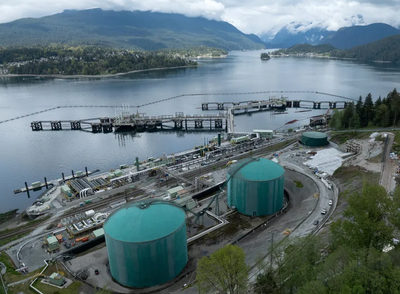A pipeline that gave Prime Minister Justin Trudeau a huge headache is finally delivering benefits — to oil companies, at least — although Trudeau should not expect to get political rewards for his troubles.
Refineries in Washington state and Oregon are displacing Iraqi crude with cheaper oil from Alberta that is now available thanks to the expansion of the Trans Mountain Pipeline, which moves bitumen-heavy Alberta crude from the oil sands in the north to the British Columbia coast.
Trudeau’s government has endured withering criticism from Western Canadians for failing to back the aggressive expansion of the emissions-intensive Alberta oil production. On the other hand, British Columbians opposed a potentially dangerous pipeline running to their beautiful coastal waters. Still, Trudeau brokered an uneasy compromise with Albertans, who couldn’t believe they had to sell their oil at a discount because of transport bottlenecks. To try to please both sides, in 2018, Trudeau bought the pipeline from Kinder Morgan for CDN $4.5 billion, which pleased nobody.
That decision is now looking like a win for the Canadian economy. There were huge cost overruns, but it will earn an estimated CA$26 to $38 billion over the next 20 years — and oil exporters don’t have to ship their product by railcar, which should get them higher prices, since they can reach new markets. The new oil in US refineries may give Americans slightly cheaper gas and, but the big winners are Canadian taxpayers, who are likely to benefit thanks to royalties and tax revenue for decades to come. Still, while it’s a big win for Alberta, Trudeau is unlikely to win any votes in the staunchly conservative oil patch, where his name is mud.
